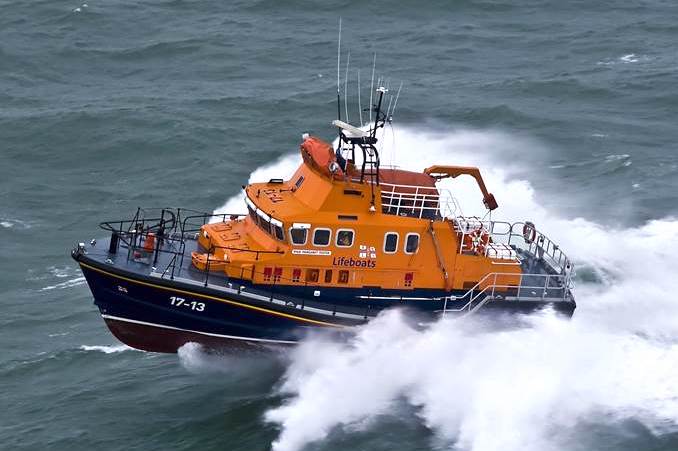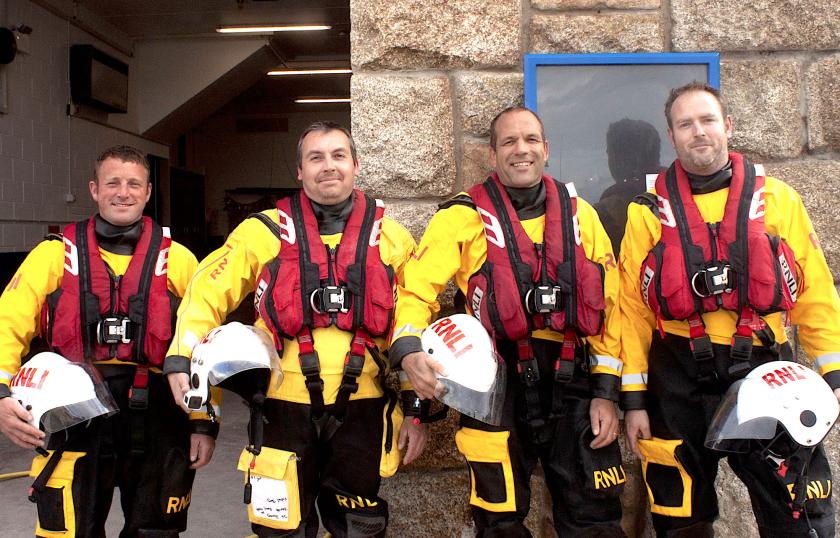Learning support officer. Student. Chip shop owner. Mobile caterer. Gym owner. These were the day jobs of some of the volunteers featured in this week’s portfolio of tales on BBC Two from the Royal National Lifeboat Institution, who would all doubtless deny that they do anything heroic. For the people they rescue, they most certainly do.
If there was a moral in this week’s programme, it was “be prepared”. Mind you, that's probably the moral every week. For instance, if you were going windsurfing at Porthcawl, you ought to do a bit of research on its unusually powerful tides, which can rise 10 metres (there’s an especially alarming specimen called the Rest Bay Bus, which can overwhelm even the most muscled-up paddler). Windsurfer Tim was the victim du jour, and he found himself being dragged towards dangerous rocks before the Porthcawl crew charged to his rescue in the nick of time. “The sea’s a beast, and if you don’t respect it it can bite you,” crewman Robin pointed out. Tim later reflected on the way his brush with mortality had sharpened his appreciation of the good things in his life (a Severn class lifeboat, pictured below).
 The most dramatic story involved the rescue of a scuba diver by the Newquay lifeboat. Colin, the victim, had been diving on an old shipwreck, but after he went missing a frantic search discovered him at a depth of 31 metres, motionless and with his air supply no longer in his mouth. The lifeboat crew were fairly sure they were too late to save him, so they were amazed to find him conscious, although looking pretty ghastly. He was helicoptered 50 miles to Plymouth and discharged from hospital five days later, but, with medics wondering if his near-death experience had been caused by a heart attack, subsequently decided that his diving days were over. “We’ll be lucky to see another one of those with a good outcome,” observed one crewman.
The most dramatic story involved the rescue of a scuba diver by the Newquay lifeboat. Colin, the victim, had been diving on an old shipwreck, but after he went missing a frantic search discovered him at a depth of 31 metres, motionless and with his air supply no longer in his mouth. The lifeboat crew were fairly sure they were too late to save him, so they were amazed to find him conscious, although looking pretty ghastly. He was helicoptered 50 miles to Plymouth and discharged from hospital five days later, but, with medics wondering if his near-death experience had been caused by a heart attack, subsequently decided that his diving days were over. “We’ll be lucky to see another one of those with a good outcome,” observed one crewman.
Elsewhere, we saw Dorset’s Mudeford crew hoiking a surprisingly cheerful windsurfer out of a storm in the Channel, the Porthcawl boat rescuing a couple of capsized sailors, and the Dover squad assisting a leaking yacht as it floundered into the Channel’s hazardous shipping lanes. The RNLI has saved 145,000 lives in its 195 year history, but its members remain quietly stoical. “Lifeboat stations run on tea,” one of the Porthcawl crew confided. “Tea fixes a lot of things.”















Add comment